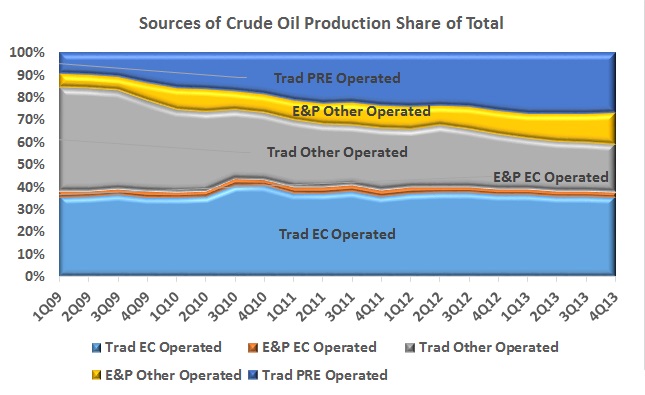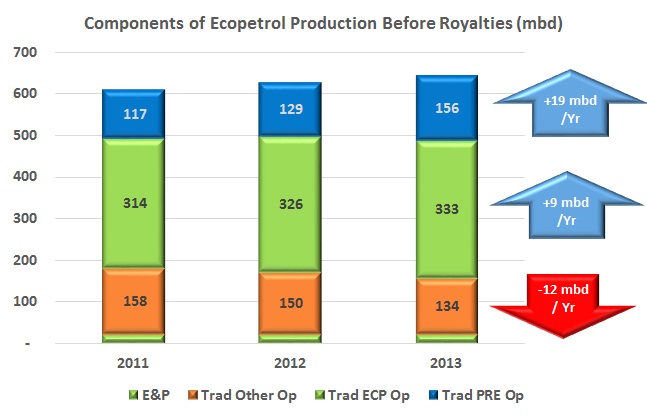
The Colombian Minister of Mines and Energy, Amylkar Acosta, heralded an optimistic view for 2014, saying that not only are investors continuing to believe in Colombia’s potential, but also a potential record of exploratory wells, some 240, will be drilled this year.
With few changes to the deadlocked peace talks in Havana, the ongoing conflict in departments like Arauca overshadowed any bits of progress, despite an assurance from President Juan Manuel Santos that the talks are now at a mature state.

ProductionE&P contracts have been available since the establishment of the National Hydrocarbons Agency (ANH). They were designed to attract other investors / E&P companies to increase reserves and production.
Investments to meet emissions standards set by the Ministry of Environment and Sustainable development have amounted to a CoP52B (US$26.4M) investment into Ecopetrol’s refinery business, only considering the Barrancabermeja Refinery.
As the date to announce fixed fuel prices for April approaches, pressure has increased on the national government to lower fuel prices, while the Minister of Mines and Energy Amylkar Acosta insists that the public should not be expecting further cuts.
School is back in session for 2014 providing an opportunity for oil producers to give school supplies to communities in their area of influence, while another program looks to encourage environmental protection at the village committee level. These and other Corporate Social Responsibility (CSR) stories.
Stories this week involving the public roadways and the oil industry include talks between local leaders and Equion, an Ecopetrol program to pave roads in Arauca, restrictions in Caquetá and more.

As Ecopetrol (NYSE:EC) shareholders go into today’s Annual Meeting they will probably be concerned about the dividend. They may be calmer than they might have been about the share price since it is up nearly US$5 from late February although still below where it closed at the end of 2013. They might complain about the refinery business. We think they should ask questions about growth.
A seismic exploration project being carried out by Pacific Rubiales is receiving increased resistance from local communities in Huila, where a number of government authorities, environmental activists and academics will organize a forum to discuss the matter.
Parex has held a press conference with local media outlets and looks to convince the local community that its plan to drill exploration wells in the Tinije Lagoon will be more environmentally safe than Spain’s Cepcolsa, who abandoned the project after community pressure.